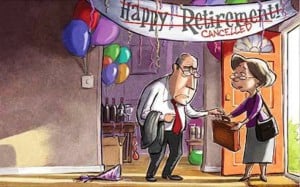SENIORS DEBT RELIEF CANADA: STRESS FREE THROUGH SENIORS DEBT RELIEF CANADA
The topic of seniors debt relief Canada has been described in the media frequently over the last year. Last week we published our blog THE MODERN RULES OF SENIORS CARRYING DEBT. Before that we’ve done a series of blogs about seniors in debt:
- Seniors Acquiring More Debt Delays Retirement
- Seniors Debt Relief: Gray Debt on the Rise
- Seniors in Debt Part 1: What Do the Golden Years Really Look Like?
- Seniors in Debt Part 2: Help for Seniors in Debt
- Seniors in Debt Part 3: Senior Credit Card Debt Relief or Declare Bankruptcy
- Seniors in Debt Part 4: Advice for Seniors with Credit Card Debt
- Seniors in Debt: Solve it Without Bankruptcy
Many Canadian seniors are struggling financially in what should have been a carefree retirement. They desperately need seniors debt relief Canada.
However, the problem with seniors carrying indebtedness into retirement is not going away. In fact, seniors have now become so accustomed to living this way that they are using it to finance their lifestyles instead of downsizing or cutting back on expenses.
The full story has not yet played out. Given that retirees and working seniors are less likely to be taking steps to accelerate their liabilities repayment, the stress on them will get worse.
The number of seniors in this situation is not only in low rate mortgages right now but is also increasing in other credit categories, such as auto loans, bank loans, lines of credit and credit cards.
This can be a recipe for disaster if interest rates rise. Where is the extra income going to come from? If you’re one of these seniors or anyone else who is relying on credit to support their lifestyle, give the Ira Smith Trustee & Receiver Inc. Team a call before interest rates rise and while you still have options. With immediate action and the right plan, we can solve your financial problems and set you on a path to a debt free and stress-free living Starting Over, Starting Now.









